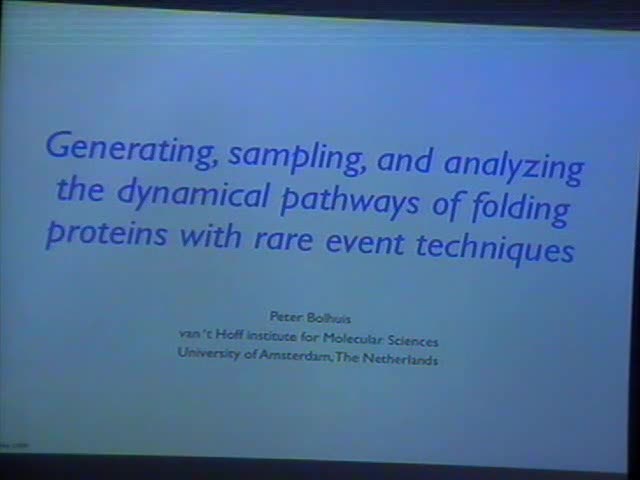Generating, sampling, and analyzing the dynamical pathways of folding proteins with rare event techniques
Presenter
May 21, 2009
Keywords:
- Molecular structure
MSC:
- 92E10
Abstract
All-atom explicit solvent molecular dynamics simulations of (un)folding and other conformational changes in proteins remain a great challenge because of the long time scales involved. These long times are due to high free energy barriers between metastable states. Rare event simulation methodology, such as Replica Exchange (REMD) and Metadynamics can overcome these free energy barriers, and give thermodynamic equilibrium properties. However, they do not preserve the dynamical pathways needed to gain insight into kinetics and mechanism of conformational change. Transition Path Sampling (TPS) is a technique designed for harvesting an ensemble of unbiased dynamical transition paths, and allows computation of the rates and extraction of the reaction coordinates. In this presentation I will discuss the various rare event methods their applicability and limitations. I will illustrate these methods on several examples: the folding of the 20-residue Trp-cage, the folding of a 37-residue WW-domain and the unfolding step in the photocycle of the 125-residue bacterial sensor Photoactive Yellow protein (PYP). For each of these systems we have studied the mechanism, reaction coordinates, folding rates, and/or barriers heights. This work shows that by employing a toolbox of computational rare event techniques we can overcome the timescale gap inherent in Molecular Dynamics of rare events and gain more insight in complex transitions such as protein folding and unfolding.
